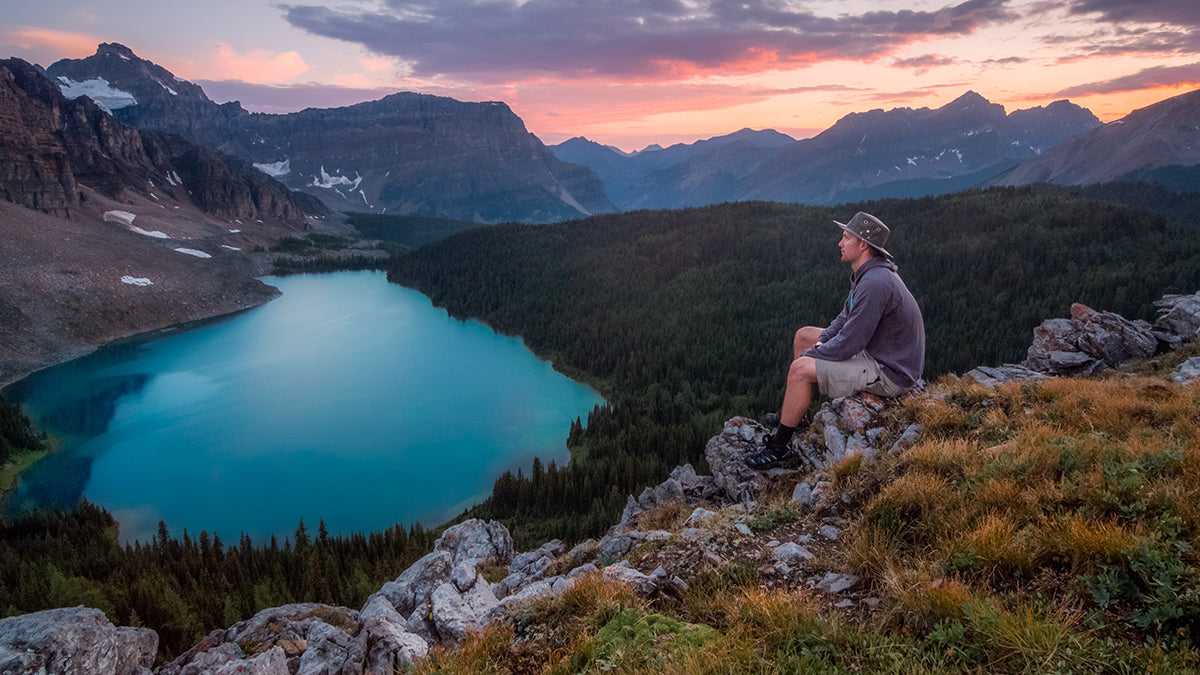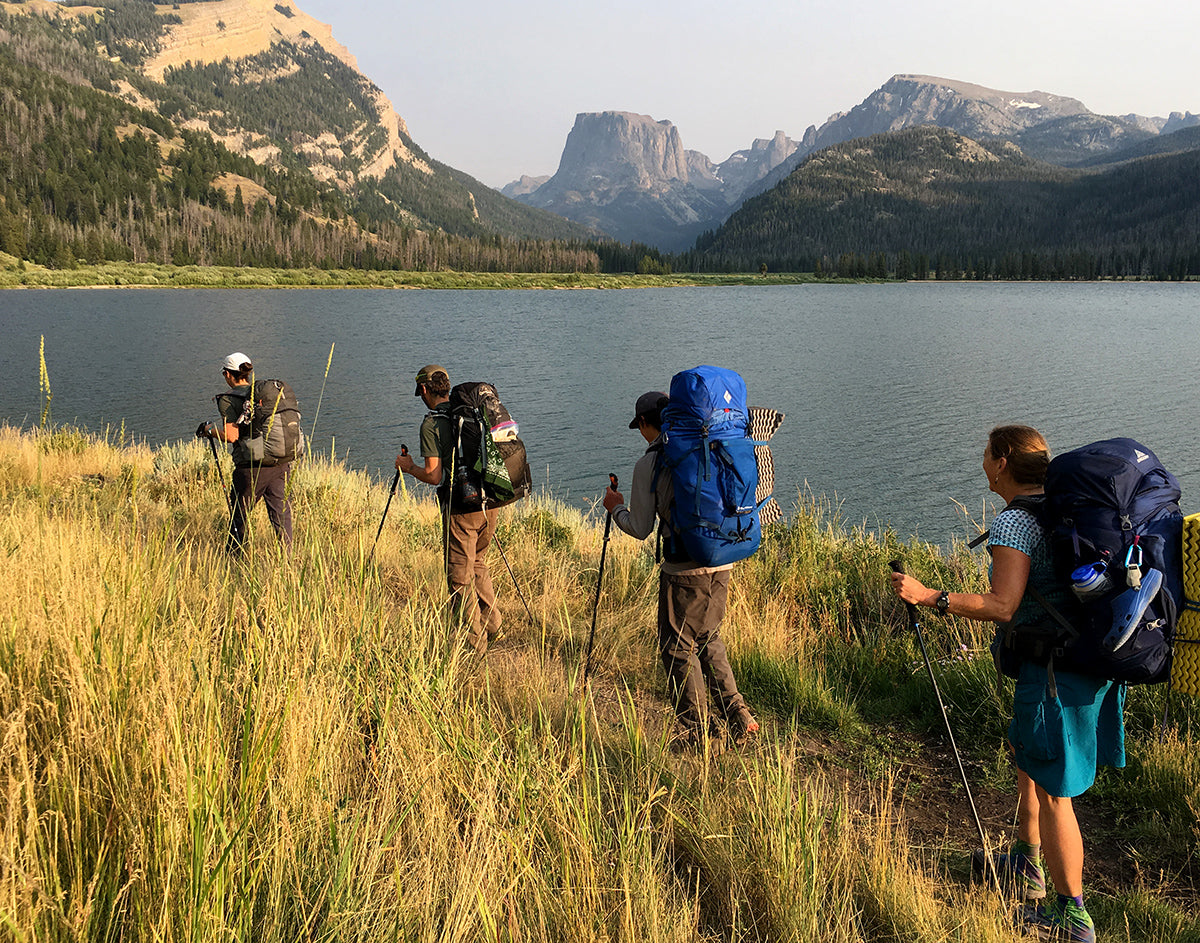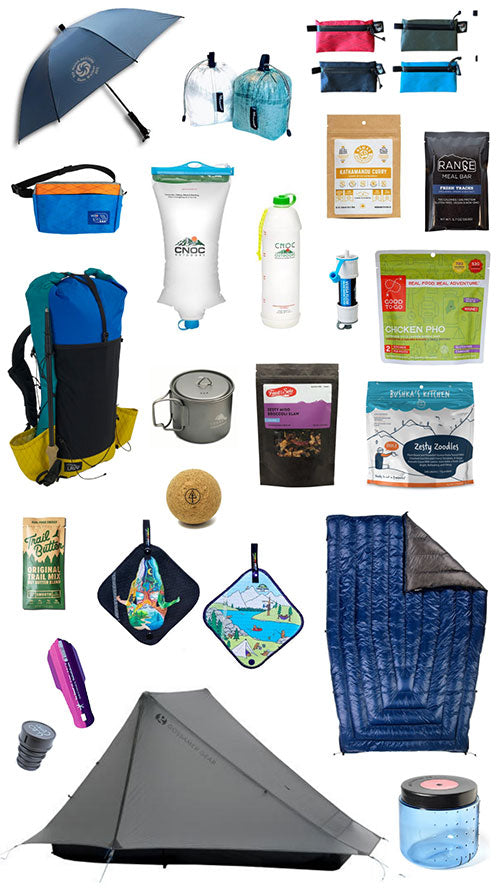
“Never again!” Is not the response you’re hoping for when you take your spouse or kid or BFF backpacking. You love this shit. You want to share the magical beauty and wonder of days immersed in nature unplugged. This can be your chance for deeper connection and making memories to reminisce over for decades to come.
Or ... the trip will be remembered with resentment that represents the gulf between you.
“I’ve been thinking about what to tell people about this trip. And nothing against you two, but I don’t think I could call it fun. There were times yesterday I wanted to go home.”
That is what my sister Annalesa said to my husband Will and I on day three of our winter camping adventure. It was a challenging Type 2 Fun trip, but it was also filled with giggles and actual fun (proof).
Three years later this is what Annalesa has to say about it now: “It was a phenomenal experience. I would absolutely do it again. The amount of confidence it gave me is remarkable."

Between Will’s Outward Bound work, my coaching, and accumulated personal experience; here are our six tips for taking your loved one into the woods:
1) Pick a location and season they will enjoy

Just because you love the rich, green, humid heat of a thick forest in peak summer might not set them up for success. Where do they want to go? What climate suits them best?
2) Plan a route that’s easy for you and not too hard for them

You want extra energy to be a good guide for your loved one. Plan something well within your ability so you can take load from their pack, or do some scouting, or manage a self rescue if things go wrong. The route should also not max out all the ways they can be challenged. This should not be their longest, fastest, highest elevation, most remote thing they've ever done. They shouldn’t be so exhausted and scared they never enjoy the views.
3) No hazing! This is not their initiation to your inner circle

Don’t throw them in the deep end. Just because you had “fun” learning things the hard way doesn’t mean they have to. This is not the time to prove to them how impressive you are by putting them through the wringer.
4) Communicate expectations

This helps them have an appropriate mindset.
a. Be explicit about the physical experience they can expect. Don't try to hide the fact that they will probably get a blister, bug bites, and be too hot or cold sometimes. If they are mentally prepared for the discomforts you can help them focus on the fun stuff.
b. Give an example timeline of a day. They shouldn't be surprised if you need to be hiking by 6 am or if you want to set up camp ASAP and not after a rest and reading break. They should also know when to expect down time for personal care or fun and games.
c. Tell them what tasks will need to be done and what they'll be able to help with. Will they set up the tent while you start dinner? Give them a chance to ask questions, learn, or practice these tasks before you leave.
5) Carry extra luxuries

What are their comfort keys or concerns? We all know that it can’t be 100% comfortable or we’d just stay in bed. But don’t strip all the comforts away if you’re trying to convince them this is fun. What are some trail luxuries that will really make a difference for them? Is it a more cushy sleep system? A quality camp chair? Special foods? The time and ability to get really clean? Games? Art? It might mean extra bulk and weight in your pack, but that’s why you picked a route that's easy for you.
6) No silent suffering! Or angry suffering!

While we don’t want whining and complaining, it’s also important to share when we are not OK. Help them take care of themselves. You don't want to find out at the end of the day that they were so crabby because their foot was a bloody pulp from an untreated blister they didn't want to whine about. You also don't want them spiraling into a depression because they didn't want to tell you how homesick they were. You don’t want a rescue for chest pains that were actually caused by days of constipation because they were afraid of spiders in the pit toilets. Normalize talking about bodily and emotional needs.
Now go guide your loved one on a trip they will love. Be bonded by the intimacy of pooping in the woods. Inspire an appetite for adventure. Create another nature lover. You’re going to have so much fun.

Kym is the owner of Zest Ed. She coaches recreational endurance adventure athletes to achieve their goals while teaching them about the process of training. Her husband Will coaches outdoorsy people to be more prepared for their wilderness adventures.They are both Wilderness First Responders. When not racing or adventuring, they live in an old apartment in Minneapolis with their kitty Pigeon, where they enjoy books, beer, and bike and run commuting year-round.
For more stories of their adventures check out Kym's blog Midwest With Zest , follow them on Instagram @zest_ed_athletics, and check out their website ZestEd.net
Sign up for Kym's “Have Fun. Don’t Die.” class on June 22nd through through the Kula Academy!














1 comment
Kim Kremer
Good advice all around.
While my now-spouse was an avid hiker before we met, I introduced him to how good backcountry food can be. One our first hike, I made my backcountry tuna noodle casserole. That may have set his expectations too high.